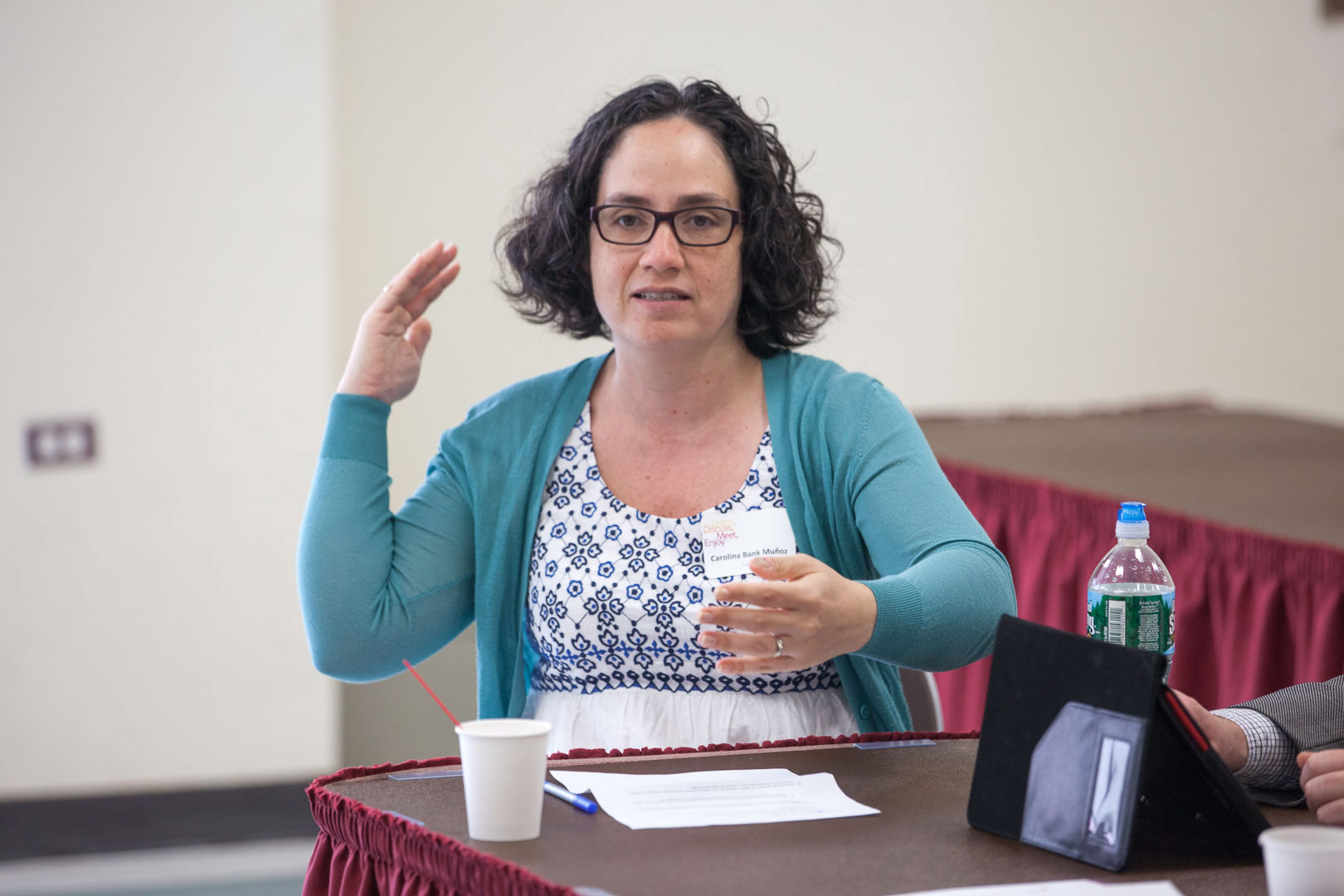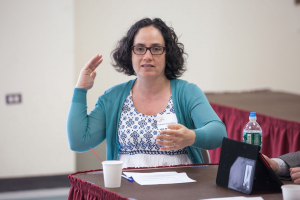

As the COVID-19 pandemic continues, so does remote learning for most Brooklyn College professors and students. In carrying on their teaching from an online platform, BC professors have taken on more than what they’ve had to in the past. Whether it be extending deadlines or tending to their student’s emotional needs, teachers have adapted to the changes in their workflow and responsibilities.
“I had to go from zero to a hundred in a very short amount of time,” said BC Sociology professor Carolina Bank-Muñoz, when reflecting on her time first making the transition to online back in March 2020.
Though many did not expect remote learning to play out for over a year, BC professors have been adapting to the technological and personal changes they’ve needed to make. For most, the move to online meant working from home, where they’d have other personal responsibilities to tend to. For Bank-Muñoz, with a partner serving on the medical frontlines, and a child learning virtually, she’s had to juggle her new life in a pandemic. The most difficult of all was getting used to the technology she needed to use for her instruction.
“I would say that in the classroom the challenges have really been about learning the technology. Taking a deep dive into learning it,” said Bank-Muñoz. Now, with over a year’s experience of remote instruction, she feels confident in her ability to continue assisting her students till the end of the pandemic and beyond.
With the challenges that the pandemic has presented to BC students, Bank-Muñoz and her colleagues assumed their positions of emotional counselors on stand-by. Empathy was one of the major components that numerous BC professors have demonstrated through their time teaching in the wake of COVID-19.
“I have seen much more resilience, initiative, and self-responsibility from students than in the past,’ said BC Music professor Jane Palmquist. “I think students are really stepping up with their responsibilities more than in the past.” Having conducted her courses virtually well before the pandemic, Palmquist was comfortable with her technology. However, once the college made the move to online, she became more aware of her students’ needs. Whether they need extensions or some counseling, Palmquist was sure to be there for them.
“I think it’s made me a better person,” said Palmquist. “You know, be kind to every person, because you don’t know what they’re going through.” Living with her spouse in a hamlet outside of NYC, Palmquist was already prepared for the isolation under COVID-restrictions. Despite not having personally been affected by the virus, she has faced “survivor’s guilt.”
“I do feel so much empathy and compassion for everyone who has been affected,” said Palmquist, who knows people who have passed away due to COVID-complications. “And I do feel a little built of guilt that some people are suffering so much.”
At the outset of remote learning, some professors were tapping into some new professional beginnings. For Alex Berkowitz, a former BC organic chemistry professor, teaching during the city’s COVID-peak provided unprecedented challenges into his classroom. Being that his instruction relied on more of an interactive approach, he found some shortcomings with the usage of Zoom.
“People I found are a lot less willing to raise their hand and ask a question because there’s just some level of embarrassment or shyness associated with it,” said Berkowitz. Being a doctoral student, teaching his first lecture at BC, he understood why his students were less willing to carry on their conversations digitally.
“It’s human nature, if nobody else is talking, it’s hard to be the one to break the silence, so to speak,” said Berkowitz. “Because again, in a classroom setting it’s a different energy, a totally different vibe when you’re going back and forth.” Spring 2020 was Berkowitz’s last semester as a professor. His focus shifted from lecturing to finishing his dissertation for his Ph.D.
In reflecting on his time teaching at the pandemic’s peak, Berkowitz expressed his concern for his students’ ability to understand the organic chemistry structures once they return to in-person instruction.
“It’s going to be hard from picking multiple-choice questions on an exam to actually drawing the structures when you’re back in the classroom,” said Berkowitz.
Despite the changes they’ve encountered in continuing their instruction online, BC professors have learned to hit the curveballs that the pandemic has thrown at them and their students. In doing so, they’ve adapted to BC’s new normal.
“It’s my job, it’s the profession I chose. Ultimately, the students have risen to the occasion,” said Bank-Muñoz. “I also need to rise to the challenge as the faculty member.”
